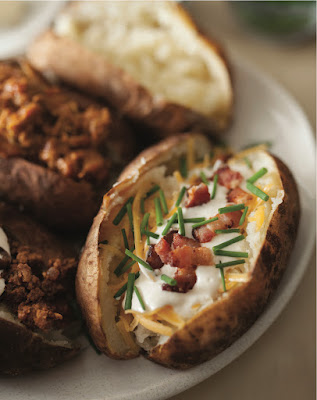When I was 22 years old and had just graduated from college, I got in a lot of arguments with my boyfriend about cheese. We were on a tight budget, and he objected to extravagances like gorgonzola. I didn't dump him, but let's just say, no man is standing between me and my blue. My counter argument? First of all, he had the metabolism of a baby cheetah and ate way more than half our food, so I insisted on a few reserve items. Second of all, we were saving money just by shopping for and cooking our own food in the first place.
Cooking for yourself is usually cheaper, especially when you're smart about how you stock the fridge. Think about all of the lattes, turkey sandwiches, takeout, and delivery you've shelled out for in the past month. Well, I'm an English major, so I'll spare you the bad math, but there's no contest! Doing it yourself pays off, and it's not hard, once you get into the habit. Personally, I don't track every penny spent. But I do jot down a weekly menu plan, keep in mind a general number, and rely on some good common sense when I'm loading up the cart.
Here are eight tips and tricks for trimming the fat from your weekly grocery budget.
1.) First of all, COOK!
Groceries are almost always cheaper than restaurant fare. Up your grocery budget, cut back on eating out, and you'll be amazed by how much further those hard-earned dollars go.
2.) Shop smart
Going to the store is step one. Making good choices is step two. Avoid prepackaged meals, or as I like to think of it, Trader Joe's syndrome. Man cannot live on frozen samosas alone! And the Whole Foods hot bar is one step away from highway robbery. Shop the perimeter, load up on fresh produce, raid the bulk bins, and yes, buy stuff you're planning on cooking yourself.
3.) Eat veggie
I'm not flexitarian because it's cool. I'm just cheap. For my weekly shop, I buy one piece of fish and one piece of red meat, because I love them, but they cost more. Round out the week with healthy, hearty veggie dinners. Rice, beans, potatoes, yams, carrots, and broccoli are all cheap and satisfying.
4.) Know your cuts
When you do eat meat, scout the case and spot where you can save. I'm always astonished that boneless, skinless chicken breasts are so expensive. By the pound, thighs are more affordable, a whole bird is even better. Chuck, flank, and blade are among the most cheapest beef cuts, best in slow-simmered stews. With fish, know your varieties and watch for sales. (As a Pacific Northwesterner, I can't recommend farmed fish for flavor, but yes, it's another option.)
5.) Leftovers with a twist
The best budget dinners stretch for more than one meal. My favorite example is a classic roast chicken. Eat the drumsticks and wings with mashed potatoes, chop up the breast meat for salads and sandwiches, shred the thighs and slip them into a soup or stew. The same principal goes for a big pot of beans (served warm with avocado and salsa, folded into a burrito, turned into chili) or grains (as a side for fish, topped with a fried egg and sprouts in a grain bowl, tossed with veggies and vinaigrette in a salad). Buy and cook it once, savor all week.
6.) Stash it in the freezer
Or, if you've had enough of the same flavor, save it for later! I rarely cook a meal that only consists of one or two servings, and making a big batch is usually the most economical. Soups, stews, and curries all reheat beautifully.
7.) Waste not, want not
My friend Kathryn confided that what keeps her from cooking is the prospect of throwing out ingredients at the end of the week. I sympathize. Life happens, and no one likes to feel like she's wasting food or money. But good housekeeping comes with experience. If you're new to planning a weekly menu and budget, start small. Cook once this week. Take it up to twice. Try to anticipate the nights you'll be busy, so you're not setting yourself up for failure. Get into a good rhythm and make it a habit.
8.) Go fridge-diving
We've all had those nights when we stand in front of the fridge and think, "We have nothing for dinner." Reality check: Your kitchen is probably full of food. I almost always have pasta and marinara, bread and ricotta, rice and frozen veggies, and eggs. Spaghetti, cheese toast, risotto with peas, fried rice with eggs, an omelette, or a scramble are all perfectly respectable dinners. Get creative! Dive in and dig in.
You can find the recipe for Jacket Potatoes with Fillings (pictured) in my cookbook, How to Feed Yourself.
Do you have any favorite ways to save money on food?
